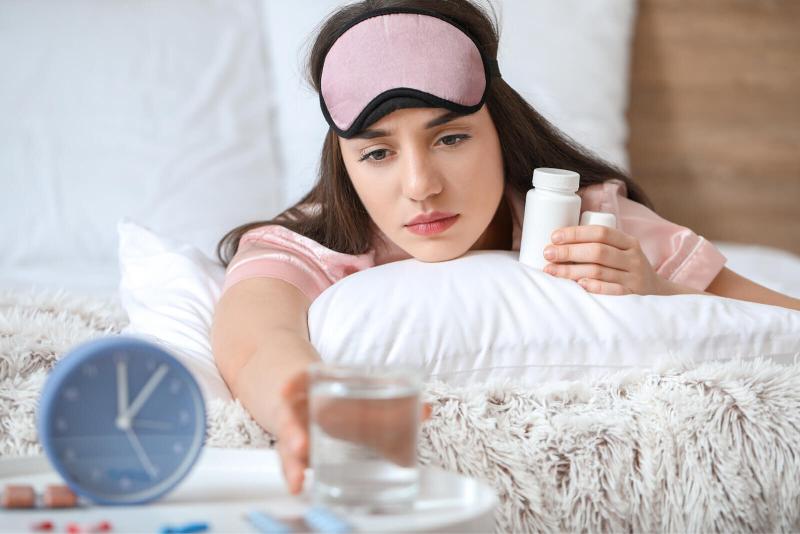Sleep plays a crucial role in our overall health and well-being. However, many struggle to get adequate, restful sleep due to various reasons like stress, irregular schedules, medical conditions, and so on. This is where sleep aids come in handy. Sleep aids refer to any substance, technique, or device intended to help people fall asleep faster, stay asleep through the night, or promote deeper, more restful sleep. Some common types of sleep aids include medications, supplements, relaxation techniques, and devices. Let's look at each type in detail.
Prescription Sleep Medications
Prescription sleep medications, also known as hypnotic drugs, are the most potent type of over-the-counter sleep aids. Some common prescription sleep medications include:
- Benzodiazepines: Such as temazepam (Restoril), triazolam (Halcion), estazolam (ProSom), and flurazepam (Dalmane). These can help you fall asleep faster but may cause dependence with long-term use.
- Nonbenzodiazepine receptor agonists: Such as zolpidem (Ambien), eszopiclone (Lunesta), and zaleplon (Sonata). They work faster than benzodiazepines and have less risk of dependence. However, they too may cause side effects like drowsiness.
- Antidepressants: Certain antidepressants like trazodone (Oleptro), mirtazapine (Remeron), and amitriptyline can help promote sleep due to their sedating effects.
Prescription sleep aids are generally recommended only for short-term use, not exceeding 4-5 weeks. Their effectiveness varies and they may cause side effects like drowsiness, nausea, fatigue, and impaired coordination. Doctors closely monitor patients on prescription sleep medications.
Over-the-Counter Sleep Aids
For occasional, mild insomnia not requiring prescription medications, OTC aids are a viable option. Common OTC aids include:
- Antihistamines: Diphenhydramine (Benadryl) and doxylamine are the main active ingredients in many OTC sleep aids. While effective, they can cause same-day drowsiness and impair function.
- Melatonin: A natural hormone that helps regulate sleep-wake cycles. When taken as supplements (1-3mg), melatonin may help induce sleep onset. It is generally well-tolerated with few side effects.
- Valerian root: An herb that may help reduce anxiety and promote relaxation. Valerian root alone or in combination with other herbs is available as an OTC sleep aid supplement.
Overall, OTC sleep aids are relatively safe for short-term use of 1-2 weeks, at lower recommended doses. However, their efficacy depends on the individual. Chronic use should be avoided and check with doctor if symptoms persist.
Alternative Sleep Therapies
For those seeking non-pharmacological aids, alternative therapies may help induce relaxation prior to bedtime:
- Sleep hygiene techniques: Like avoiding screen time before bed, maintaining a relaxing bedtime routine, sleep-friendly bedroom environment. Consistency is key for sleep hygiene.
- Relaxation techniques: Guided imagery, progressive muscle relaxation, meditation, yoga, and deep breathing help calm the mind and body. Practicing them 30-60 mins before bed provides better results.
- Aromatherapy: Essential oils like lavender, chamomile, and bergamot have sedative properties when inhaled or applied topically on pressure points.
- Physical activity: Regular daily exercise aids restorative sleep but should be avoided close to bedtime to allow full relaxation.
- Cognitive behavioral therapy: A psychological intervention proven highly effective for chronic insomnia. Requires commitment and persistence.
Devices for Better Sleep
The latest advancements in technology have given rise to specialized devices that aid healthier sleep:
- Smart sleep trackers: Wrist-worn devices by Fitbit, Garmin track sleep stages, movements, duration etc. to provide insights on sleep quality.
- White noise machines: Masking ambient sounds and providing a consistent backdrop improve sleep onset. Apps allow different noise choices.
- Blue light blocking glasses: Blocking blue wavelength light from digital screens in the evenings adjusts circadian rhythm for enhanced sleep drive.
- Anti-snoring mouthpieces: Contour to the wearer’s teeth to alleviate airway obstruction during sleep preventing snoring.
When combined with lifestyle optimization measures, sleep aids whether prescription, over-the-counter, alternative therapies or devices can effectively treat occasional and chronic sleep issues. Consult appropriate medical experts before adopting any new aid.
